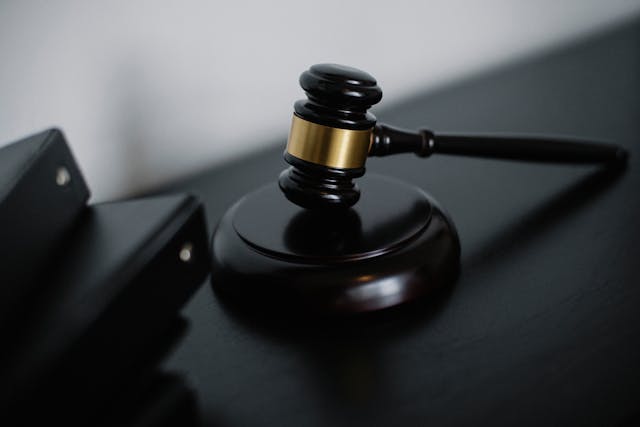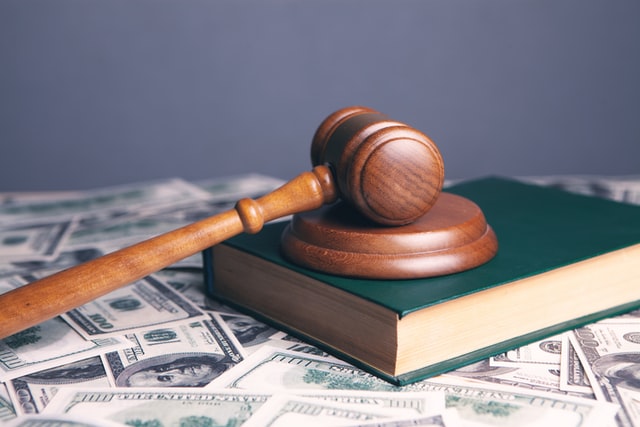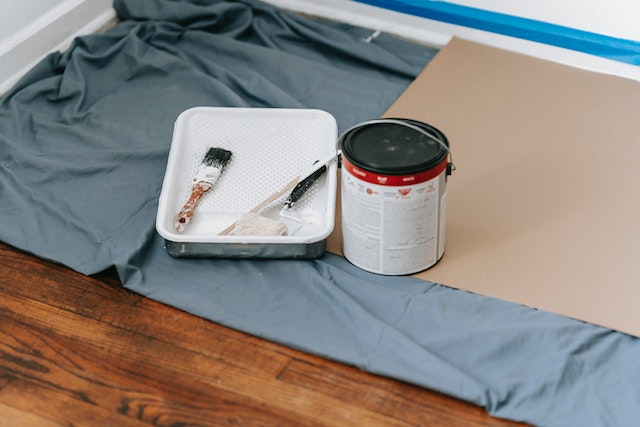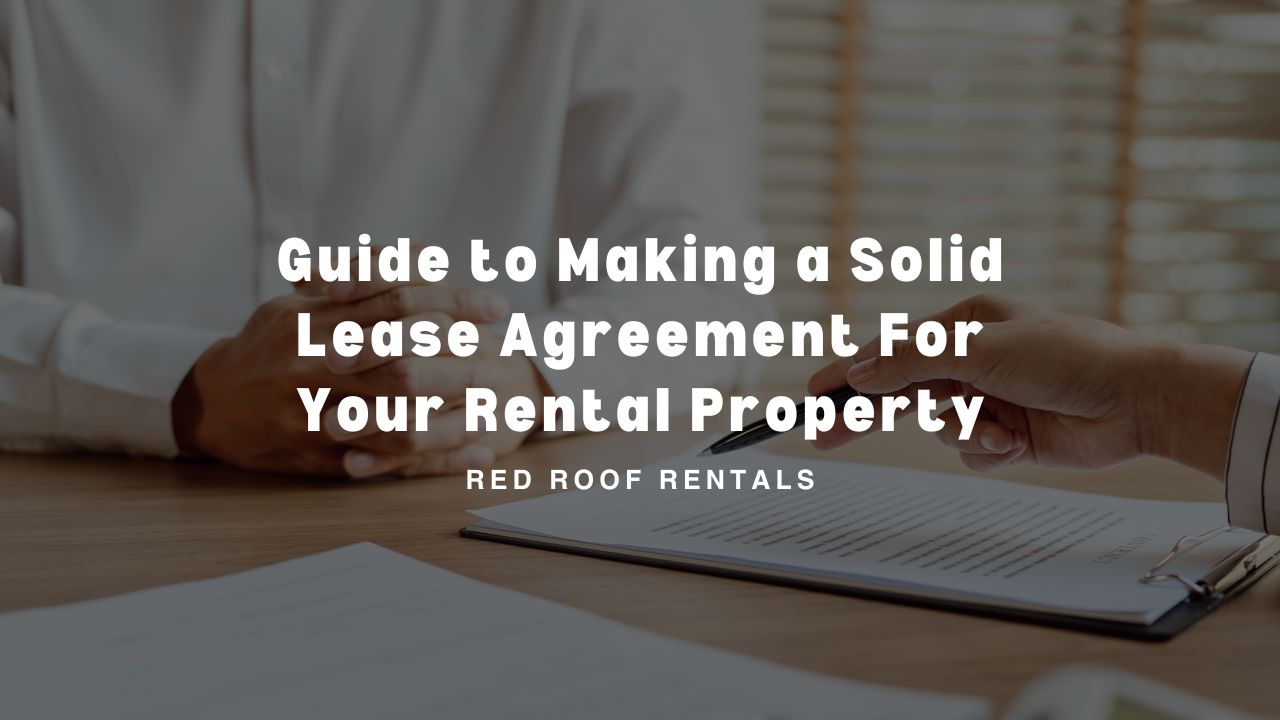Key Takeaways
- A Well-Drafted Lease Protects Landlords and Tenants – A comprehensive lease agreement establishes clear terms, responsibilities, and rules, preventing common issues like nonpayment of rent, property damage, and lease violations. Including essential clauses such as maintenance duties, pet policies, and lease termination terms ensures a smoother rental experience and financial security.
- Compliance with Local Laws is Essential – Lease agreements must align with local and federal rental laws to be legally enforceable. Understanding regulations regarding rent control, security deposits, eviction procedures, and privacy laws helps landlords avoid fines, legal disputes, and unenforceable lease terms.
Are you worried about tenants not paying rent on time, overstaying their welcome, or damaging your rental? These are common worries among landlords. After all, renting out a property means opening the doors of your home to strangers.
Rental properties can be incredibly profitable, providing you with a steady passive income and long-term equity growth. While there are risks associated with owning a rental property, a well-drafted lease agreement can keep your property protected from most of these dangers. With the right documentation, you can prevent lease-breaking, nonpayment of rent, and tenant misconduct, ensuring a smoother rental experience and financial security.
You may feel overwhelmed by the prospect of drafting your own lease. But thankfully, anyone can write a solid lease agreement. In this article, the experts at Red Roof Rentals will tell you exactly how you can do it! Keep reading to discover the top strategies for writing a strong lease and keeping your investment protected.
Familiarize Yourself with Local Rental Laws
Your lease agreement must comply with local rental laws to be legally enforceable. Additionally, failing to comply with your local landlord-tenant laws can lead to fines, voided lease terms, and legal disputes.

Here are some key laws you should keep in mind when drafting your leases:
- Rent Control Laws - Some jurisdictions limit rent increases and establish tenant protections. However, Washington doesn’t have rent control laws, allowing landlords to raise rent by any amount and as often as they choose.
- Fair Housing Laws - Federal and local laws prohibit housing discrimination based a person's protected characteristics. Refusing to provide accommodation to any group or treating applicants differently because of their protected characteristics is a clear violation of Fair Housing Laws.
- Security Deposit Regulations - Some jurisdictions have laws that govern deposit limits, how funds must be stored, and refund timelines. Security deposit laws also specify allowable deductions and the time limit for returning the deposit.
- Eviction Rules - Washington landlords can only evict tenants for nonpayment of rent and lease violations. Trying to evict tenants on other grounds can lead to legal disputes.
- Habitability Standards - As a landlord, you must provide safe, livable conditions to tenants. This often includes working plumbing, heating, and electrical systems.
- Lease Termination Requirements - Laws specify notice periods and conditions for ending a lease.
- Privacy and Entry Laws - Landlord-tenant laws dictate how much notice landlords must give before entering a rental unit. Failure to comply with these laws can result in legal disputes.
- Rent Payment - In Washington, landlords must give tenants a minimum 5-day grace period before charging a late fee.
- Late Fee Rules - The maximum late fee they can charge is $20 or 20% of the monthly rent, whichever is greater.

Use Clear and Precise Language
Ambiguous terms can lead to differing interpretations, making enforcement difficult. Vague terms and legal jargon can lead to confusion and misunderstandings. If you want tenants to follow the terms of your lease, then you should ensure it’s easy to understand. Simple, direct wording reduces the risk of miscommunication and strengthens the agreement’s legal standing.
Set Rules on Property Use
Defining how tenants may use your rental property is key to keeping your investment protected. By outlining occupancy limits, guest and subletting policies, noise restrictions, and prohibited activities in the lease, you’ll ensure compliance with local laws and prevent issues.
Include Essential Details
A well-written lease clearly defines the landlord and tenants’ responsibilities, the duration of the lease, payment terms, rent amount, rules, and penalties for lease violations. Additionally, your lease should include your and your tenants’ full names and signatures.
Specify Pet Policies
By including rules for pets in your lease, such as pet deposits, breed restrictions, maintenance duties, and rules regarding pet waste, you can keep your investment protected while keeping tenants happy. And, if you don’t allow pets in your rental, specifying it in the lease will protect your investments from tenants who may try bringing a pet in without your authorization.
Detail Maintenance Responsibilities
Maintaining your rental property is a shared obligation between you and your renters. Clarifying landlord and tenant maintenance obligations in the lease will help you prevent misunderstandings and ensure your property is well cared for.

Define Consequences for Lease Violations
Even with a good screening process in place, you may encounter tenants who don’t follow the terms of the lease. Outlining penalties for rule-breaking is crucial for protecting your investment. Moreover, a well-written lease can strengthen your legal position if disputes ever arise.
Include a Termination Clause
A termination clause outlines how and when landlords and tenants can legally end a lease. It specifies required notice periods, conditions for early termination, and penalties for breaking the lease.
This prevents confusion, ensures compliance with local laws, and provides a clear exit strategy to both parties, reducing disputes and financial losses. A well-defined termination clause can also help you handle tenant transitions more smoothly by giving you time to find new tenants for your Tacoma, Washington properties.
Bottom Line
Your lease agreement is the ultimate line of protection for your rental property. A lease that specifies maintenance responsibilities, rent amount, lease duration, and acceptable uses of the property, among other things will prevent common misunderstandings and disputes.
Moreover, outlining the consequences of lease violations and rule-breaking helps encourage landlords to follow the terms of the lease. By complying with local and federal rental laws, using clear language, and being precise when writing rules and obligations, you’ll be able to keep your rental property protected!
If you need help managing your Tacoma, WA, rental, contact Red Roof Rentals today!


